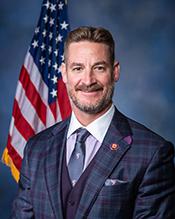0
0
0
Federal Disaster Tax Relief Act of 2023
12/20/2024, 12:57 PM
Summary of Bill HR 5863
Bill 118 hr 5863, also known as the Federal Disaster Tax Relief Act of 2023, aims to provide tax relief to individuals and businesses affected by natural disasters in the United States. The bill includes provisions such as allowing for tax deductions for disaster-related expenses, providing tax credits for rebuilding efforts, and offering tax breaks for businesses that have been impacted by disasters.
Additionally, the bill seeks to streamline the process for claiming disaster-related tax benefits, making it easier for individuals and businesses to access the relief they need. It also includes measures to ensure that the tax relief provided is targeted towards those who have been most severely affected by disasters.
Overall, the Federal Disaster Tax Relief Act of 2023 is designed to help individuals and businesses recover from the financial impact of natural disasters by providing them with much-needed tax relief.
Additionally, the bill seeks to streamline the process for claiming disaster-related tax benefits, making it easier for individuals and businesses to access the relief they need. It also includes measures to ensure that the tax relief provided is targeted towards those who have been most severely affected by disasters.
Overall, the Federal Disaster Tax Relief Act of 2023 is designed to help individuals and businesses recover from the financial impact of natural disasters by providing them with much-needed tax relief.
Congressional Summary of HR 5863
Federal Disaster Tax Relief Act of 2023
This bill extends rules for the treatment of certain disaster-related personal casualty losses and provides tax relief for losses due to wildfires and a certain incident involving a train derailment.
Specifically, the bill excludes from taxpayer gross income, for income tax purposes, any amount received by an individual taxpayer as compensation for expenses or losses incurred due to a qualified wildfire disaster (a disaster declared after 2014 as a result of a forest or range fire). It also excludes relief payments for losses resulting from the East Palestine, Ohio, train derailment on February 3, 2023.
Read the Full Bill
Current Status of Bill HR 5863
Bill HR 5863 is currently in the status of Signed by President since December 12, 2024. Bill HR 5863 was introduced during Congress 118 and was introduced to the House on October 2, 2023. Bill HR 5863's most recent activity was Became Public Law No: 118-148. as of December 12, 2024
Bipartisan Support of Bill HR 5863
Total Number of Sponsors
9Democrat Sponsors
0Republican Sponsors
9Unaffiliated Sponsors
0Total Number of Cosponsors
35Democrat Cosponsors
16Republican Cosponsors
19Unaffiliated Cosponsors
0Policy Area and Potential Impact of Bill HR 5863
Primary Policy Focus
TaxationPotential Impact Areas
- Accidents
- Disaster relief and insurance
- Fires
- Forests, forestry, trees
- Income tax exclusion
- Railroads
Alternate Title(s) of Bill HR 5863
Federal Disaster Tax Relief Act of 2023
Federal Disaster Tax Relief Act of 2023
Federal Disaster Tax Relief Act of 2023
Federal Disaster Tax Relief Act of 2023
To provide tax relief with respect to certain Federal disasters.
Comments
Sponsors and Cosponsors of HR 5863
Latest Bills
Technical Corrections to the Northwestern New Mexico Rural Water Projects Act, Taos Pueblo Indian Water Rights Settlement Act, and Aamodt Litigation Settlement Act
Bill S 640December 12, 2025
Keweenaw Bay Indian Community Land Claim Settlement Act of 2025
Bill S 642December 12, 2025
ARCA Act of 2025
Bill S 1591December 12, 2025
Disaster Related Extension of Deadlines Act
Bill HR 1491December 12, 2025
Billion Dollar Boondoggle Act of 2025
Bill S 766December 12, 2025
PORCUPINE Act
Bill S 1744December 12, 2025
Miccosukee Reserved Area Amendments Act
Bill HR 504December 12, 2025
Crow Tribe Water Rights Settlement Amendments Act of 2025
Bill S 240December 12, 2025
Technical Correction to the Shoshone-Paiute Tribes of the Duck Valley Reservation Water Rights Settlement Act of 2025
Bill S 546December 12, 2025
Tribal Trust Land Homeownership Act of 2025
Bill S 723December 12, 2025
A bill to provide tax relief with respect to certain wildfire relief payments.
Bill S 3711February 2, 2024
Federal Disaster Tax Relief Act of 2024
Bill S 3678March 13, 2024
Providing for the consideration of the bill (H.R. 5863) to provide tax relief with respect to certain Federal disasters.
Bill HRES 961June 18, 2024
Tax Relief for American Families and Workers Act of 2024
Bill HR 7024August 1, 2024





